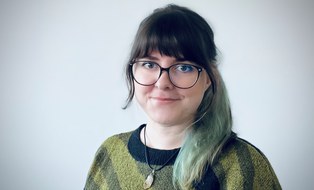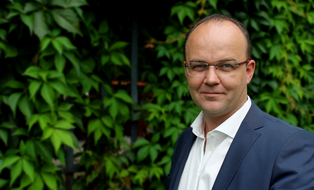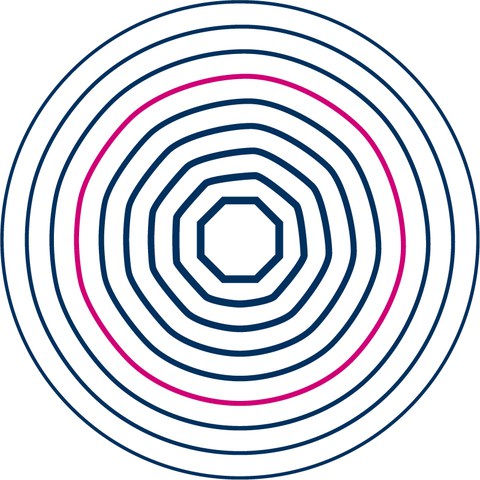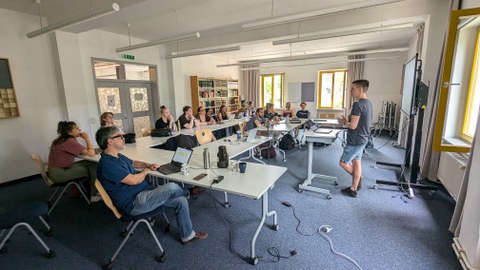Master "Digital Humanities"
Inhaltsverzeichnis
Studium und Studieninhalte
Die Angebote des viersemestrigen Masterstudiengangs "Digital Humanities" richten sich an Studierende aus den Geistes- und Sozialwissenschaften, die die Möglichkeiten digital gestützter Lehre, Forschung und Vermittlung in der Praxis kennen- und umsetzen lernen wollen. Das Studium ist am Kerncurriculum Digital Humanities (nach Sahle 2013) orientiert.
Es setzt auf eine breite Grundlagenausbildung mit informatischen Anteilen und anschließende Spezialisierung in Wahlpflichtbereichen. Dies sind:
- Gesellschaft und Geschichte,
- Kunst und Bild,
- Schule und Bildung oder
- Sprache und Literatur
Sie werden ergänzt durch Querschnittsthemen wie Daten, Recht und Ethik. Berufliche Perspektiven werden in einem Praxissemester gemeinsam mit Partnereinrichtungen entwickelt. Zu den Partnereinrichtungen gehören z.B. die Sächsische Landesbibliothek – Staats- und Universitätsbibliothek Dresden (SLUB), die Staatlichen Kunstsammlungen Dresden (SKD), das Institut für Sächsische Geschichte und Volkskunde (ISGV), das Sorbische Institut (SI) und das Hannah-Arendt-Institut für Totalitarismusforschung (HAIT).
Die Studieninhalte sind auf den Erwerb der Schlüsselkompetenzen hin ausgerichtet, die Studierende zur Gestaltung der Wissensgesellschaft im 21. Jahrhundert in einer digitalen Arbeits- und Medienwelt befähigen. Zu nennen sind die Grundlagen der Digital Humanities, der angewandten Informatik und der inter- und transdisziplinären Projektentwicklung. Im Kern stehen forschungs- und anwendungsorientierte Methoden der Geistes- und Sozialwissenschaften auf den Gebieten der Digitalen Text-, Bildungs-, Kultur-, Kunst-, Bild- und Musikwissenschaften. Spezifische rechtliche Grundlagen im Umgang mit digitalen Medien und Inhalten sowie Transfermöglichkeiten zwischen unterschiedlichen Kultur-, Bildungs- und Vermittlungsinstitutionen runden das Angebot ab.
Prof. Alexander Lasch stellt den Master-Studiengang "Digital Humanites" vor. © CC BY 4.0 Alexander Lasch
Wahlpflichtbereiche
Über die Wahlpflichtbereiche erhalten die Studierenden einen vertiefenden Einblick in die Digital Humanities an der Schnittstelle zwischen den Geistes- und Sozialwissenschaften und Akteur:innen in Kultur-, Bildungs- und Vermittlungsinstitutionen wie Museen, Galerien, Sammlungen, Bibliotheken und Archiven.
Im Wahlpflichtbereich Gesellschaft und Geschichte steht der Zusammenhang von digitalen Transformationen und historischen Quellen im Mittelpunkt. Zu denken ist bspw. an die Bereitstellung von Quellencorpora, ihre Erschließung, Modellierung und Analyse mittels spezifisch digitaler Methoden bis hin zum Wissenstransfer in den öffentlichen Raum.
Im Wahlpflichtbereich Kunst und Bild rücken Bildkünste, Architektur und visuelle Kulturen in den Fokus. Neben digital gestützter Lehre und Forschung sind es besonders Formen der digitalen Vermittlung, zum Beispiel in Museen, digitalen Ausstellungen etc., die hier von Interesse sind.
Im Wahlpflichtbereich Schule und Bildung wird an exemplarischen Fragestellungen der Bildungswissenschaften (zum Beispiel Unterrichts- und Schulentwicklung) das Verhältnis von Digitalisierung und Bildung theorie- und empiriebasiert reflektiert.
Im Wahlpflichtbereich Sprache und Literatur stehen sprach-, literatur- und kulturwissenschaftliche Fragestellungen unter den Vorzeichen digitaler Methoden im Zentrum. Dies umfasst den Aufbau und die Nutzung maschinenlesbarer Korpora, die Erstellung und Weiterentwicklung digitaler Editionen, die inter- und transdisziplinäre Projektvernetzung sowie die Vermittlung von Methoden und Ergebnissen der digital gestützten Sprach-, Literatur- und Kulturwissenschaft.
Praxis- und forschungsorientierte Lehre
Das Partnerforum kann exemplarisch für die Verzahnung von Praxis- und Forschungsorientierung in der Lehre an modernen Lernorten (hier im SLUB TextLab) stehen. Es bietet eine einzigartige Gelegenheit, die enge Verknüpfung von Theorie und Praxis im Masterstudiengang abzubilden und auch einer interessierten Öffentlichkeit vorzustellen. Es werden Ergebnisse aus obgligatorischen semesterbegleitenden Praktika in Museen, Forschungseinrichtungen, Bibliotheken und bei Unternehmen präsentiert und Einblicke in entstehende Forschungsarbeiten gegeben. In den Projekten wird deutlich, wie mit dem Einsatz digitaler Technologien innovative geistes- und kulturwissenschaftlich orientierte Forschungsfragen gestellt und gleichzeitig mit praktischen Anforderungen aus der und für die Berufswelt verbunden werden. Dabei zeigen die Studierenden auf der Basis ihrer Praktikumserfahrung und der Entwicklung von Forschungsfragen, wie sich der Horizont der Geistenswissenschaften in der digitalen Transformation weitet, und die Zusammenarbeit zwischen Wissenschaft und Gesellschaft gefördert werden kann.
Mögliche Berufsbilder
Absolvent:innen des Masterstudiengangs stehen die Möglichkeiten akademischer Forschung offen; der Abschluss befähigt zur Promotion. Die koordinierende und kuratierende Arbeit in Museen, Galerien, Sammlungen, Bibliotheken und Archiven, die Entwicklung und Betreuung von kommunalen und touristischen Digitalangeboten sowie die Arbeit in Bildungseinrichtungen sind weitere mögliche Berufsfelder. Eine Orientierung kann die enge Zusammenarbeit mit den Partnereinrichtungen des Studiengangs und die Studienberatung bieten.
Abschluss Master of Arts und eine umfangreiche Ausbildung für eine digitale Arbeits- und Medienwelt. Das ist der Masterstudiengang Digital Humanities an der TU Dresden. Studiendekan und Professor Dr. Alexander Lasch geht auf die wichtigsten Fragen ein. © TUD GSW
Ansprechpartner/Beratung
Studienbüro GSW
Ihre Ansprechpartnerin für diesen Studiengang im Prüfungsamt ist
Heike Grahn
Telefon: 0351 463 37302
E-Mail:
Webseite: Prüfungsamt
Studienfachberatung
 © Katharina Fritzsch
© Katharina Fritzsch
Studiengangskoordination Master "Digital Humanities"
NameKatharina Fritzsch M.A.
Eine verschlüsselte E-Mail über das SecureMail-Portal versenden (nur für TUD-externe Personen).
Studienbüro Bereich GSW:
BZW, Sockelgeschoss, Raum ASG06 Zellescher Weg 17
01069 Dresden
Deutschland
Sprechzeiten:
nach Vereinbarung
 © Alexander Lasch
© Alexander Lasch
Studiendekan "Digital Humanities"
NameHerr Prof. Alexander Lasch
Eine verschlüsselte E-Mail über das SecureMail-Portal versenden (nur für TUD-externe Personen).


